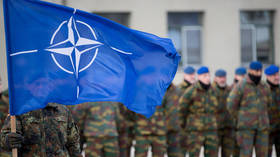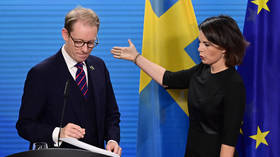NATO needs enemies to justify its existence – Russia

Having an enemy to fight against is essential for NATO’s survival, Russian Deputy Foreign Minister Alexander Grushko has claimed.
The diplomat added that the bloc’s expansion is largely motivated by the need to antagonize nations so they can fit the role of an enemy.
“NATO is the kind of organization that cannot live without an enemy. If it had none, it would have died,” he was quoted as saying by RIA Novosti news agency on Monday.
“They have declared Asia a zone of the alliance’s interest, pushed the zone of their defense right to the border of China,” he noted.
Grushko said the conflict in Ukraine stems from NATO’s declared intention to eventually accept Kiev as a new member, while ignoring Russia’s national security concerns. The alliance is still trying to bring in Ukraine, he said, adding that he doesn’t believe the US and its allies are acting rationally on the issue.
The NATO leadership claims to have an open door policy, saying that every nation has a sovereign right to choose it as provider of security. Its charter, however, requires all members to approve any expansion, a fact that came to the forefront after Türkiye stalled the accession of Finland and Sweden over their alleged sheltering of terrorism suspects.
The US-led military alliance declared the inclusion of Ukraine as one of its objectives in 2008, dismissing Moscow’s warning that such a move would cross a red line. After the 2014 coup in Kiev, the new Ukrainian government dropped the nation’s neutrality policy and said that joining NATO was its primary goal.
When Russia sent its troops into Ukraine in February, it cited NATO’s clandestine expansion into Ukraine as one of the key reasons. Organization members were training and arming the Ukrainian army and establishing military infrastructure in the country without formally accepting Kiev’s membership bid, Moscow said.













